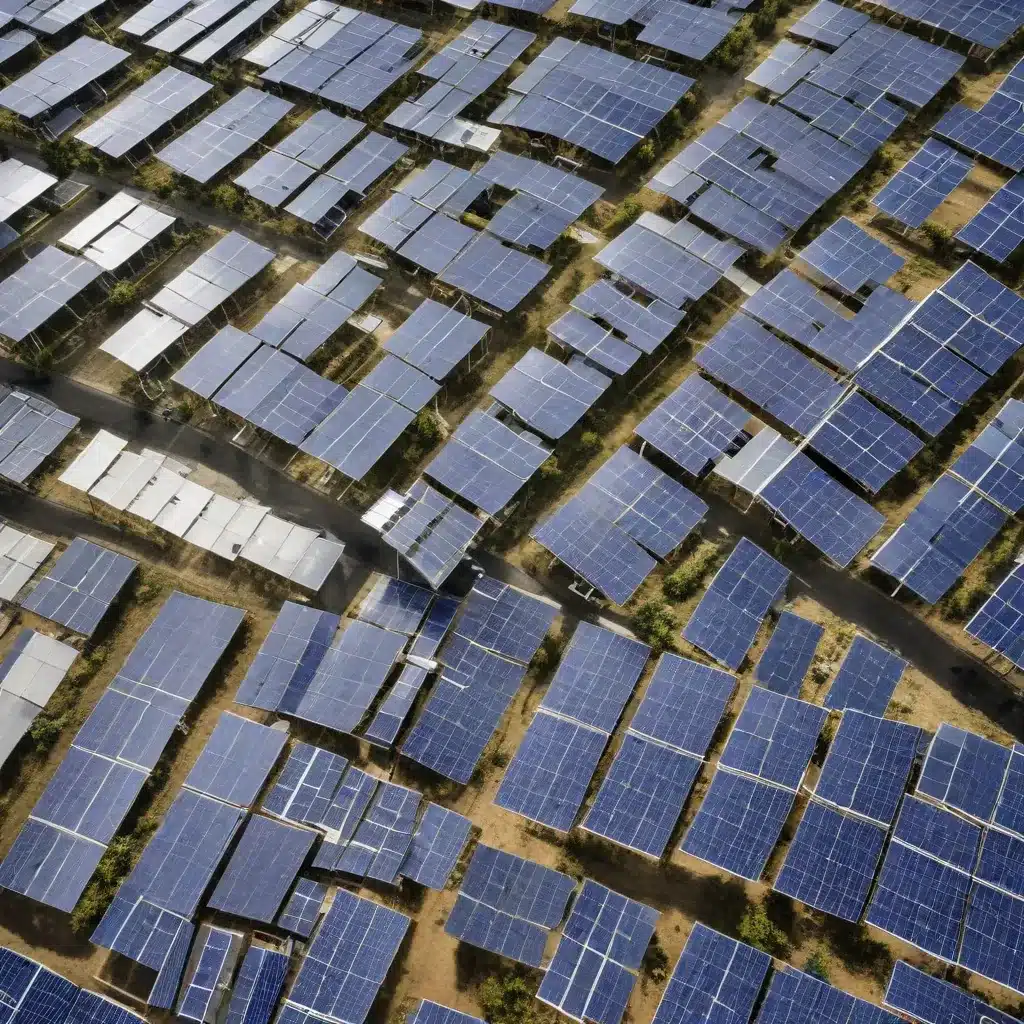
Europe is at the forefront of a pivotal energy transition, harnessing the power of renewable energy sources and unleashing the potential of a novel “sharing economy” ecosystem. As the continent accelerates its drive towards net-zero emissions, a new class of energy actors has emerged—the “prosumers”—consumers who also produce and actively manage their own renewable energy.
Sustainable Energy Sources
The European Union has set ambitious targets to generate 32% of its energy from renewable sources by 2030. This shift is being catalyzed by dramatic cost declines in wind and solar photovoltaic (PV) technologies, making them increasingly competitive with traditional fossil fuels. Europe’s installed wind capacity surpassed 200 GW in 2020, with offshore wind farms rapidly scaling up along the continent’s coastlines. Similarly, rooftop solar PV has seen exponential growth, with many homeowners and businesses embracing the opportunity to generate their own clean electricity.
Beyond these mature renewable technologies, Europe is also pioneering the development of green hydrogen production. Powered by renewable electricity, electrolyzers split water molecules to produce pure hydrogen fuel. This clean hydrogen can then be used to decarbonize hard-to-abate sectors like heavy industry and long-haul transportation. Several European nations have unveiled ambitious hydrogen strategies, with plans to install gigawatts of electrolyzer capacity by 2030.
Distributed Generation Models
Underpinning this renewable energy surge is a fundamental shift towards more decentralized and distributed generation models. Rather than relying solely on large, centralized power plants, the energy landscape is becoming increasingly diverse, with millions of smaller-scale producers feeding into the grid. This democratization of energy is empowering consumers to take an active role, transitioning from passive ratepayers to engaged “prosumers.”
The modernization of electricity grids is crucial to enabling this prosumer revolution. Investments in smart grid technologies—including advanced metering infrastructure, automation, and digitalization—are equipping the grid with the intelligence to integrate these decentralized renewable energy sources. Pilot projects across Europe are exploring innovative peer-to-peer energy trading platforms, allowing prosumers to seamlessly buy, sell, and share their renewable energy within local communities.
The Sharing Economy Ecosystem
The growth of the “sharing economy” has also catalyzed new models of energy consumption and collaboration. Pioneered by disruptive platforms like Airbnb and Uber, the sharing economy harnesses digital technologies to enable peer-to-peer transactions and collaborative consumption. This same ethos is now permeating the energy sector, empowering prosumers to engage in novel energy-sharing arrangements.
At the heart of this transition are energy cooperatives and community energy initiatives, where neighbors and local businesses band together to collectively generate, store, and trade renewable electricity. Enabled by blockchain-powered distributed ledgers, these prosumer-centric models facilitate transparent and secure peer-to-peer energy trading, allowing participants to monetize their renewable energy assets and optimize their energy use.
Intersection of Renewable Energy and Sharing Economy
The convergence of renewable energy and sharing economy principles is creating a powerful synergy, transforming the role of the consumer in the energy system. By democratizing access to clean energy generation and storage, prosumers are becoming active market participants, no longer passive ratepayers. This “prosumer revolution” is unlocking new business models, from virtual power plants that aggregate distributed energy resources to energy-as-a-service platforms that provide turn-key renewable energy solutions.
Importantly, this prosumer-centric paradigm shift is not just about technology—it also requires fundamental changes to the policy and regulatory landscape. The European Commission has taken steps to enshrine prosumer rights, mandating that consumers be allowed to generate, store, and sell their own renewable electricity without facing undue restrictions. Furthermore, the recognition of energy communities as a distinct legal entity is empowering citizens to band together and collectively participate in the energy transition.
Technological Enablers
The proliferation of advanced digital technologies is a crucial enabler of the renewable energy-sharing economy convergence. Blockchain and distributed ledger technologies are facilitating secure, transparent, and automated peer-to-peer energy transactions, eliminating the need for centralized intermediaries. The Internet of Things (IoT) and smart devices are enabling prosumers to monitor, optimize, and dynamically manage their energy generation and consumption, unlocking the full potential of demand-side flexibility.
Meanwhile, innovative digital platforms and applications are streamlining the prosumer experience, providing users with intuitive interfaces to track their energy data, participate in energy-sharing communities, and even access dynamic electricity pricing schemes. These technology-driven solutions are empowering prosumers to take control of their energy futures, while also contributing to the broader grid’s reliability and resilience.
Empowering Prosumers, Strengthening Energy Security
The rise of prosumers is not just about individual empowerment—it has far-reaching implications for Europe’s energy security and climate goals. By diversifying the energy mix and democratizing access to clean energy generation, the prosumer revolution is enhancing the resilience of the continent’s energy system. As more citizens and communities take ownership of their energy futures, the EU’s reliance on imported fossil fuels is diminished, reducing exposure to geopolitical volatility.
Moreover, the active participation of prosumers in the energy system is unlocking new sources of flexibility and grid balancing services. By strategically consuming, storing, and trading their renewable energy, prosumers can help mitigate the variability inherent in intermittent solar and wind generation, supporting the grid’s overall stability and reliability.
As the European Future Energy Forum (europeanfutureenergyforum.com) continues to showcase, the renewable energy-sharing economy convergence is a dynamic and evolving landscape. Policymakers, industry leaders, and engaged citizens must work in tandem to further cultivate this prosumer-centric energy ecosystem, empowering consumers to play a central role in Europe’s clean energy transition.







